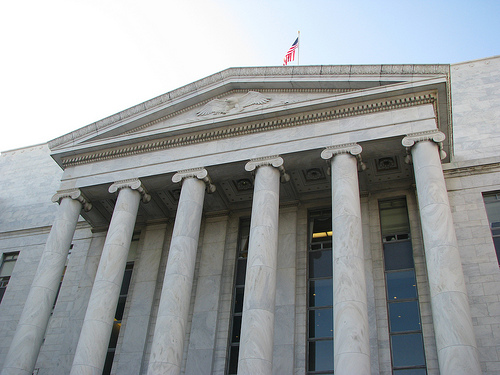A few days ago, I posed a question on Facebook and on Twitter: What will our offspring know about us in a thousand years? It came after a conversation about how what we know about our ancestors has been discovered through archaeology and discovery of physical evidence. We know much about the Egyptians through discovery and exploration of the pyramids, sphinx and pottery. We know what we know about the Roman Empire due to written evidence, scrolls and ruins.
In our digital age of bits and bytes… where tremendous amount of data is stored in non-physical locations (can you say “The Cloud”?), what will be the traceable evidence of our society in a thousand years?
 This morning, the Library of Congress announced it was acquiring (weird choice of words as it denotes ownership) the entire archive of tweets sent out via Twitter. Will they print these things out so there are paper copies? How will the digital archives of trillions of little messages that, individually may be mundane (how many tweets that read similar to: “OMG I <3 bacon!” exist?), be stored in such a way to create a greater texture and context of our society?
This morning, the Library of Congress announced it was acquiring (weird choice of words as it denotes ownership) the entire archive of tweets sent out via Twitter. Will they print these things out so there are paper copies? How will the digital archives of trillions of little messages that, individually may be mundane (how many tweets that read similar to: “OMG I <3 bacon!” exist?), be stored in such a way to create a greater texture and context of our society?
Dave Winer, of whom I despise as a person but who has produced some excellent work in the past, has railed on this for some time…. if we own our own content, how will we preserve it when entrusted unilaterally to another service. We send status updates to Facebook without ever thinking about how or where that content will be used in the future. Tweets are sent from mobile devices and the web without ever really considering that, hey, Twitter might sell the rights to this stuff to the Library of Congress…
Not that I feel like there is a problem with this. On the contrary, if anyone is qualified to preserve our generations and society for a thousand years to come, it is the Library of Congress.
For more on this story, check out Read Write Web’s story on the acquisition.

